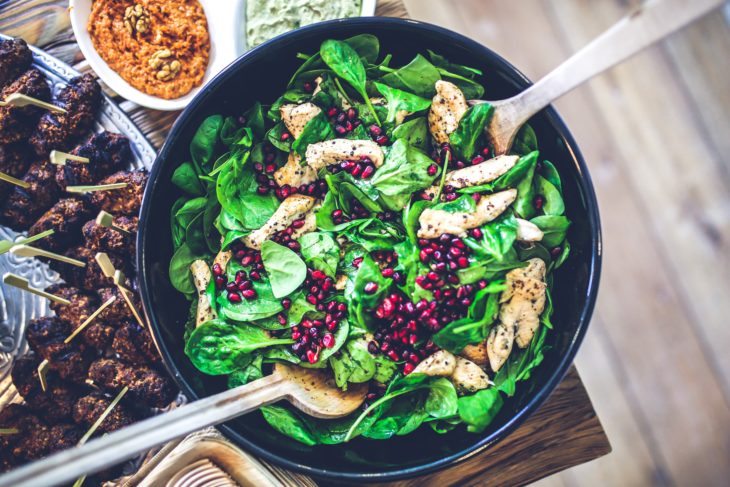
When you’re trying to conceive a baby it seems as though there are oh-so-many “do’s and don’ts” it can be hard to keep track. Starting a family, or adding to your family, is overwhelming enough, but when you add in all the advice from well-meaning friends, the media, and even the medical profession, it’s easy to feel confused and uncertain.
Part of your confusion may be the food and drug administration’s seemingly ever-changing advisories. Should you eat fish? Is all cheese out? Can you ever have a glass of wine? What about sodas? While the constant barrage of information pertaining to your diet and what you can and can’t safely enjoy may make you feel like you’re giving up a lot, we’re here to clear up any confusion you may have, and bring you up to date on the FDA guidelines for a healthy diet while trying to become pregnant.
Foods to Enjoy
The good news is that there are so many delicious foods that you can-and should-eat while trying to become pregnant. It’s not necessary to deny all of your cravings, and, in fact, you want to enjoy these foods as much as you can now. When you do become pregnant the nausea of morning sickness, and some out-and-out food
Whole foods, like fruits and vegetables are best. Think of whole, non-processed foods as those food with the shortest route from the source. Of course, organic is always best, but make sure fruits and vegetables are well-washed, and your dairy is pasteurized. Build your diet around:
- Dark, leafy greens, like spinach, kale, and collards, citrus, nuts, whole grains, fortified cereals, and legumes like peas, chickpeas, lentils, soybeans, and peanuts are all excellent sources of folic acid.
- Seafood is back on the list. The FDA is suggesting those who are trying to become pregnant eat no more than 12 ounces of fish and seafood per week. The Omega 3’s found in cold-water fish like salmon, are extremely beneficial to the development of your baby, as well as guarding against depression in mom, preventing early labor and preterm birth, and preeclampsia. Here is a list from the FDA of fish that’s safe for youth enjoy, now, and during pregnancy.
- Dairy foods are an excellent addition to your diet. You not only get calcium, vitamin D and protein, but
full fat dairy can improve your fertility. Studies show includingfull fat dairy in your diet can cut your risk of failure to ovulate by as much as 50%. - A rainbow of fruits and vegetables is essential to your good health and your fertility. These delicious power foods have anti-inflammatory properties, which can improve your fertility and make your body an ideal environment for a developing embryo. Pineapple is an especially delicious and beneficial choice. The beta-carotene in pineapple can help prevent early miscarriage, and bromelain is excellent in fighting inflammation.
- Water is one of the
best, and healthiest ways to quench your thirst, and it’s also good for cell development, making your cervix more receptive by thinning the mucus, and the overall health of your organs.
Foods to Avoid
The foods you should avoid, for the most part, when attempting to conceive, are foods you should probably avoid in order to be at your best health anyway. Drastically limit these foods, or cut them out completely. If you have a partner who tends to enjoy these foods, get them on board as a show of support.
- Fish that’s known to be higher in mercury is a dangerous choice for you if you’re trying to become pregnant. Refer to the FDA guide linked above. The fish you should absolutely avoid are marlin, swordfish, and shark. Mercury is very dangerous for the developing baby’s central nervous system, and mercury stores can build up in your system.
Sodas, and other soft drinks can cause spikes in your blood sugar, creating inflammation, and causing metabolic changes that can affect fertility. Artificially sweetened drinks can cause an imbalance in yourgut-bacteria , which can add to inflammation, and artificial colors, flavoring, and other ingredients can be damaging to your overall health. Just say no.- Snack foods, or fried foods, containing trans-fats have been shown to up your insulin resistance. This can be dangerous to you, especially if you’re trying to conceive. As far as your overall health, and making sure you’re as healthy as you can be once your child arrives, trans-fats are extremely disruptive to your cardiovascular health.
- Simple, and refined, carbohydrates can also spike your blood sugar and cause increased inflammation. This reaction to refined and processed foods is very harmful to your fertility as it impacts your hormone, causing fluctuations which can prevent ovulation.
- Limit, or stop, alcohol consumption for right now. Not only can it be detrimental to the health of the developing baby, but the excessive calories in alcohol are devoid of nutrients, and also deplete your B vitamins, and cause dehydration.
- Raw dairy, raw fish (sushi), soft cheeses, such as camembert, brie, gorgonzola, and Roquefort, deli meats, and any other foods that greatly raise your risk of food-borne illness are out. The risk isn’t worth it. Many of these food-borne illnesses, such as listeria, can up your risk for miscarriage substantially. Avoid them for now.
Dads Aren’t Exempt
Obviously it takes two of you to make a baby, so dad also needs to be concerned with his diet during the period when you’re trying to conceive. Sperm can be effected by many of the same foods that are disruptive to mom’s fertility and dad’s fertility can be improved-along with his overall health-by taking on the same dietary recommendations. Think of it as a show of solidarity. You’re in this together.
Image: Pexels










